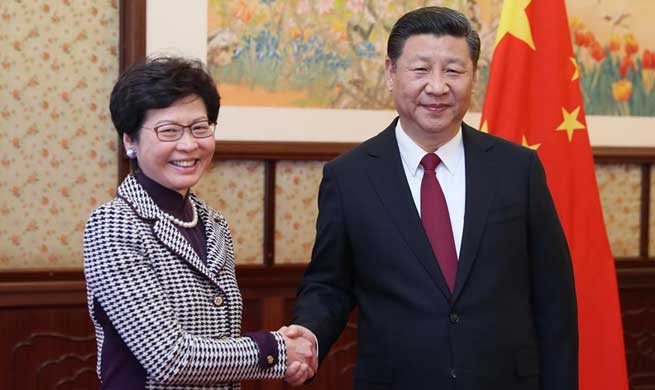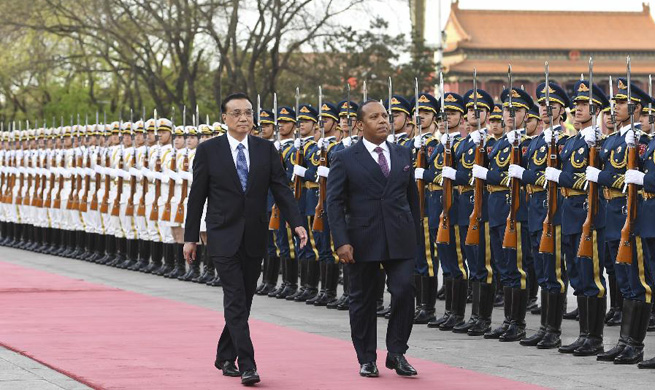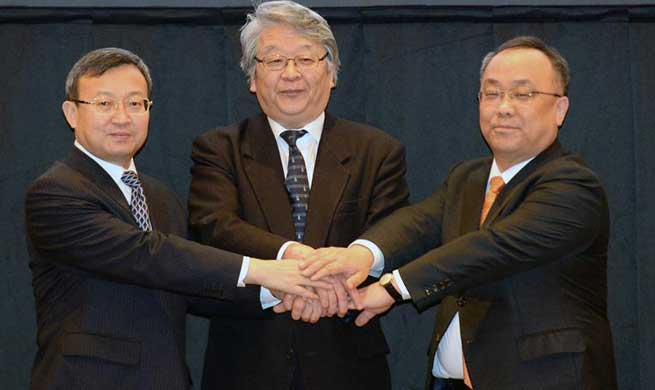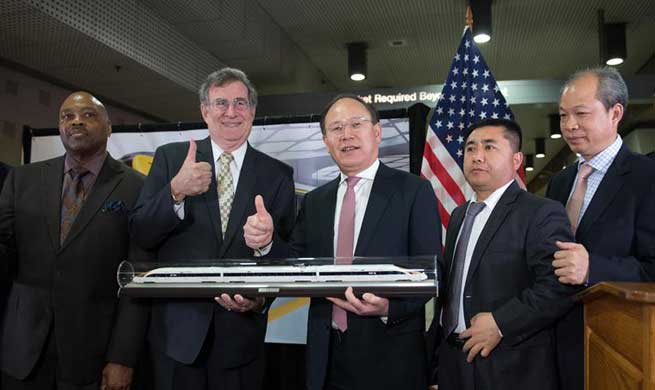HELSINKI, April 13 (Xinhua) -- The recent deadly attacks in surrounding areas have aroused the concern over the public security in Finland, and thus intensified a debate in the country whether to upgrade the allegedly outdated national security legislation.
Prime Minister Juha Sipila wants the parliament to pass a required constitutional amendment as a fast track move. It would require 166 votes in the 200-member parliament. Otherwise the reform would not take effect until after the 2019 parliamentary elections, which is considered too far in the future.
According to media reports, the planned reform would give both the police and the defense forces intelligence unit bigger powers for tapping communications. They could use their powers without a specific case of a crime being suspected.
The changes have been prepared in parliamentary working groups and politicians have commented on the plans without going to detail. The full contents of the suggested legislation will be released to the public next week.
A fast track constitutional process has never been used during the current constitution of 2000. The option was intended for major crisis situations. Criticism has been directed both on the required fast process as well as on the plan itself.
Green Party's Member of Parliament Jyrki Kasvi told national broadcaster Yle that these changes probably should have been done years ago, so that the current parliament could have passed them.
Kasvi meanwhile warned against the possible authorization of mass surveillance. "It is the duty of officials to protect our privacy as well," he said.
He underlined the control over the police force as well. "We no longer have a naive trust that an official is always trustworthy," he said, referring to a recent case when a high police officer was given a long prison sentence for misuse of his powers.
Pertti Salolainen, a senior conservative Member of Parliament, hoped a national consensus could be found to make the changes happen as soon as possible. He said Finland is 20 or 30 years behind countries comparable to Finland in national security legislation. He singled out the case where information about espionage against the Finnish Foreign Ministry some years ago came from foreign intelligence sources.
Jaakko Lindgren, a lawyer specializing in information technology, said on Yle the increased power of military intelligence could be validated soon as the operations would be targeting foreign organizations and the rights of Finns would not be involved that much.
But a thorough discussion would be needed about the intelligence gathering that the domestic security police would do. Lindgren said the costs and benefits of the powers must be looked into.
He said in countries such as the United States and Sweden, various powers has been applied but violent acts have continued nevertheless.
"Mass surveillance is a risk. It would have to be clearly defined," Lindgren said. Lindgren also pointed out that technological development can be faster than the legislation.
The debate has taken place against a backdrop of increased security related police presence in Finland and the upcoming Easter gatherings in Helsinki this weekend which may attract wider police attention. The Finnish police decided to carry rifles at the Helsinki Airport visibly during this weekend. Previously, the rifles were put in the back bags of the officers.
A series of violent incidents have shocked Europe recently with the latest hitting Stockholm, capital of Sweden. The attack killed four people and injured 15 others.

















